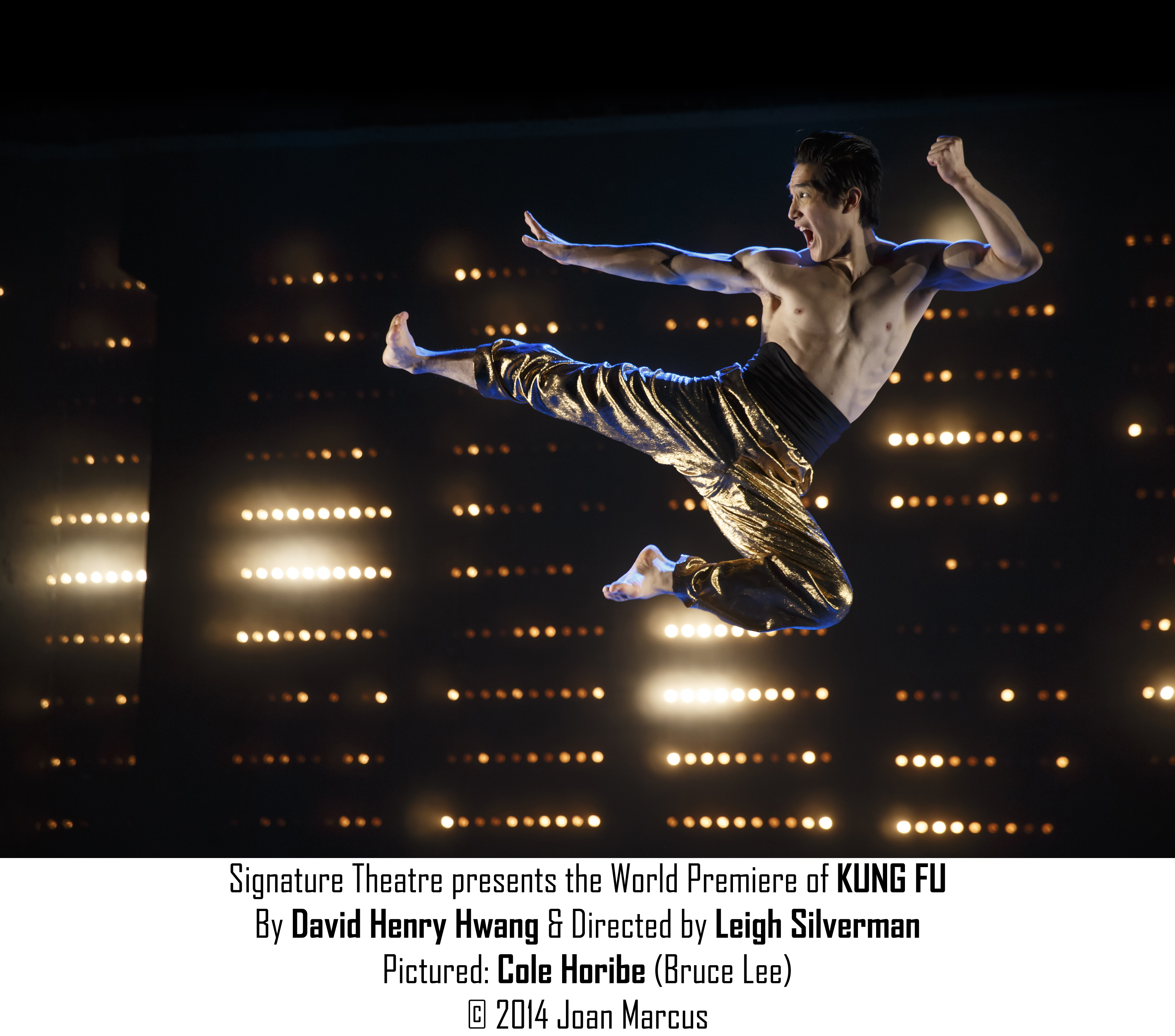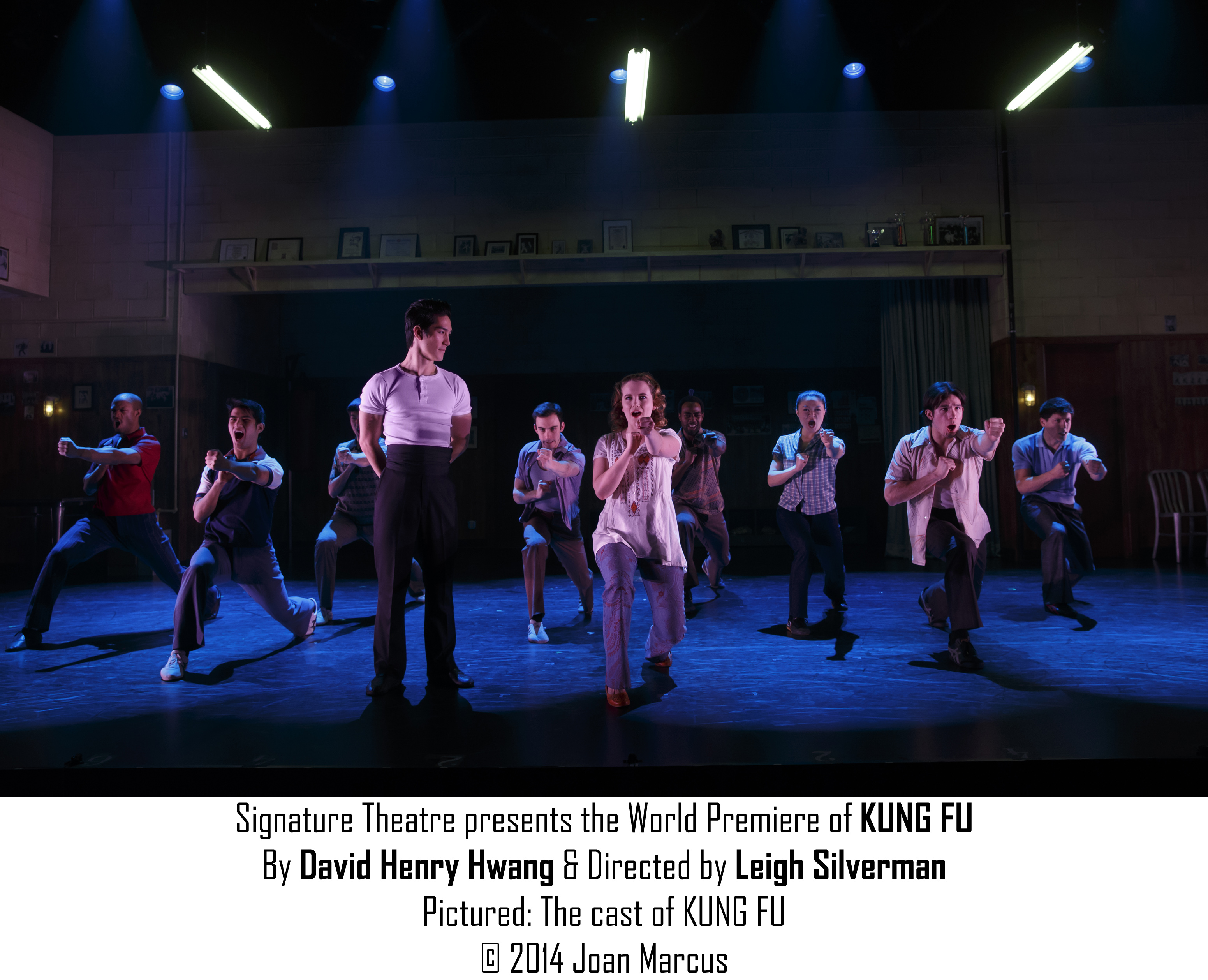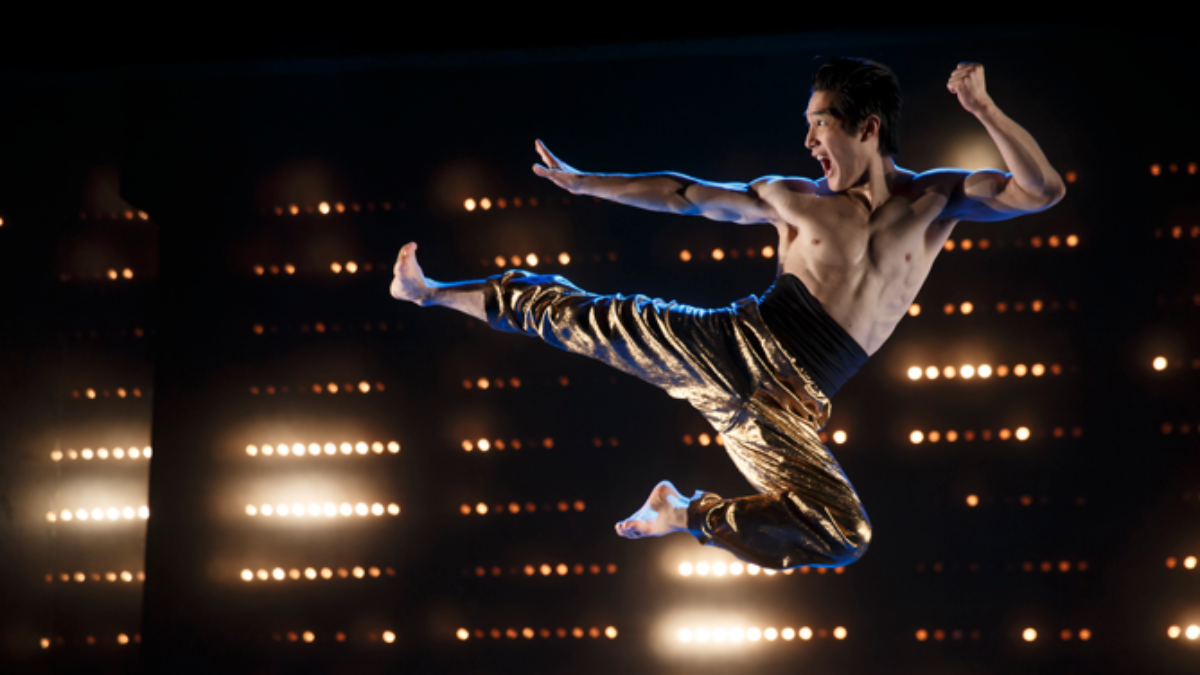REVIEW: KUNG FU
A Play by David Henry Hwang
Directed by Leigh Silverman
Starring Core Horebi (as Bruce Lee)
A Signature Theater Production
Reviewed by Hilary Bettis
Bruce Lee called his vision of martial arts “the style of no style”. And perhaps that vision best summarizes David Henry Hwang’s new play KUNG FU, at Pershing Square Signature Center. The story centers on the iconic Lee, from his coming-of-age in a small studio in Seattle, through his Hollywood years, and ultimately, his return to Hong Kong where he became the Bruce Lee as we know him.
The story begins in 1959 in a small studio in Seattle. Bruce, played by Cole Horibe (a former contestant on SO YOU THINK YOU CAN DANCE, who moves with precision and grace), encounters a Japanese-American woman and aspiring modern dancer who tries to ignore Lee’s charm and persistence, but he wins her over with a few impressive moves. She shows him a few moves back, until their bodies are flowing between dance and martial arts (in a beautifully choreographed scene by Sonya Tayeh). “ I usually date Americans,” she tells Lee as the dance comes to an end. “Over here Chinese guys wait tables and do laundry. Better get used to it.”

This opening scene sets the stage for a play that is equally movement and story. In subsequent scenes, Lee learns these lessons the hard way. He’s fired from a waiter’s job for insubordination. He encounters racism as a co-star of the TV show THE GREEN HORNET. He doesn’t get credit for conceiving the TV series KUNG FU because he is Asian. When his wife, Linda (Phoebe Strole), goes to work to support the family, he even feels his manhood threatened. Ultimately, KUNG FU is a play that explores themes of immigration, assimilation, masculinity, loyalty and family, struggles Lee battled most of his life, which became the wisdom and philosophy behind kung fu.
For every one of Lee’s failure, his father, a Cantonese opera performer, is sure to show up in a flashback scene (Ben Stanton’s lighting is deeply effective) to scold his son for betraying his heritage. The tormented and uncompromising Hoi-Chuen (Francis Jue, gives an exquisite performance), wearing traditional robes, (Anita Yavich’s costume design is dazzling), is an imposing force Lee must reckon with.
Leigh Silverman, who worked with Hwang on GOLDEN CHILD (also at Signature) and the Broadway production of CHINGLISH, masterfully directs with subtlety and fluidity. Filled with a juxtaposing combination of opera, movement, comic book camp, flashbacks and poetic drama, Silverman fluidly navigates the story through stylistic changes that would easily stump a lesser director.

Bruce Lee felt that traditional martial arts techniques were too rigid and formalistic to be practical in scenarios of chaotic street fighting. He believed martial arts should emphasize “practicality, flexibility, speed and efficiency” or “the style of no style.” At first it felt like Hwang’s play lacked a concrete choice. Did it want to be a musical, opera, docu-drama or satire of kung fu films? But ultimately it became clear that the meshing of theatrical form was done quite purposely to embody the very philosophy and wisdom of Bruce Lee.
KUNG FU runs through April 6th at the Signature Theater Company. Watch CineVue’s interview with David Henry Hwang in 2013.
Hilary Bettis is a playwright and screenwriter. Awards, residencies, and commissions include O’Neill National Playwrights Conference (Alligator), James McLure Fellowship New River Dramatists, Sloan/EST Commission (Dakota Atoll), John N. Wall Fellowship Sewanee Writer’s Conference, Blackburn nomination (Mexico), Cherry Jones and Abingdon Theatre Company grant. She is a staff writer for offoffonline.com, and has writen articles for TDF Stages. Currently she is working on a commission through Carol Ostrow (The Desert) and a feature film.

